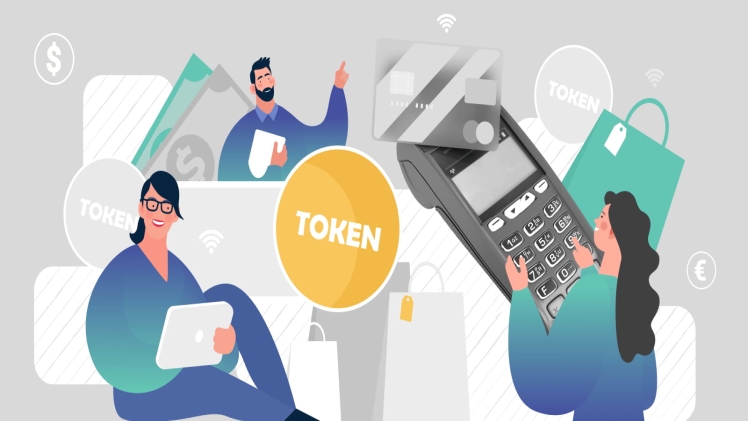While digitization isn’t exactly a new trend, it’s happening at an accelerated rate lately due to the COVID-19 pandemic. Most processes are happening digitally, and online payments have significantly increased. The need for better security and protection of sensitive customer data has therefore also increased. In the past, blockchain technology has been used to process payments safely, but mostly in cryptocurrency.
Tokenization is also a valuable technology to a cryptocurrency portfolio manager as it enhances transparency and trust with investors. This revolutionary technology is taking it a notch higher with payment tokenization. So, what is payment tokenization, and how does it work? Can it successfully handle the online payment challenges now and in the future? This article looks into what it is and how it benefits businesses and their customers.
What is tokenization?
In a layman’s language, tokenizing is to substitute something for another. The best example of tokenization is the use of casino chips for slot machine gambling. You exchange money for chips whose value doesn’t mean anything outside the casino, making them less valuable to others. Similarly, credit cards can be tokenized to protect your sensitive data by replacing it with a randomly generated algorithm containing letters and numbers.
Traditional payment methods take your credit card number through the payment processor and are stored at the merchant’s Point of Sale (POS) terminal for internal processes and reuse. In tokenized payment, when you use your credit card, it doesn’t go to the payment processor, but it instead passes through tokenization. This is where the random numbers (token) are assigned, goes through the payment processor, then the merchant completes a purchase safely.
Benefits of Payment Tokenization
Credit card tokenization allows customers to shop safely without their data being exposed on stored with payment processors or merchants. Here are more benefits:
Reduced Risk of Data Breach
Cybercriminals target credit and debit card information and use the data for their gain. Insecure systems expose useful payment information that hackers can sell in the black market or use the data to make fraudulent purchases at your expense. Tokenization masks all the sensitive information that a hacker could exploit. This way, even in the case of a data breach, there’s a lower risk of data and financial loss.
Fosters Customer Trust
In the wake of numerous data breaches across industries, customers want assurance of security and safety of their data when making purchases. The first step to foster trust is guaranteeing them of protection of their personal data. Customers always appreciate a business that demonstrates deliberate efforts towards data security.
Easier Compliance with Regulations
If your business accepts card payments, there are compliance regulations —Payment Card Industry Data Security Standard (PCI DSS) that you must adhere to. Tokenization simplifies compliance significantly by addressing the issue of the protection of cardholder information. Without the sensitive customer payment card information reaching your POS, you effectively satisfy the compliance regulation.
Major Payment Companies Using Tokenization
- Google Pay: They issue a virtual account number that links to the actual card to enable payment through Google Pay
- Apple Pay: Like Google Pay above, Apple Pay replaces the actual card number with another that looks just like the original number, but it isn’t. This stops the actual card number from being used during a transaction.
- Visa Inc.: Tokenization Visa works by replacing sensitive card information with a token that allows payment processing without exposing the real account information.
Final Thoughts
Technology has come a long way to ensure information security and payment processing is catching up fast. Tokens safeguard customer data by rendering the information useless to hackers. Many payment companies are adopting tokenization as a safe way to make payments. Tokenization is helpful to businesses and customers alike.

